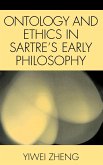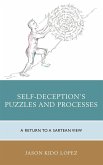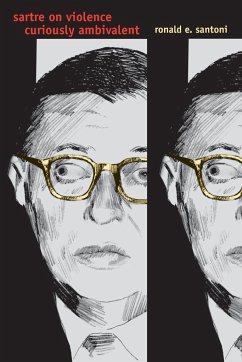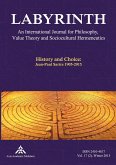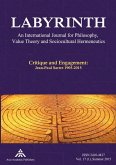This work reexamines Sartre's phenomenology from the perspective of contemporary debates in political theory with particular attention to the reemergence of theories of human nature. For Sartre, any construct that stood between the self and its direct encounter with the world was suspect. Sartre's version of direct realism is a strong refutation of the 'new essentialism' that has emerged in recent years as a back-door invocation of theories of human nature. This book provides an account of the major ideas that inform the new essentialism and that serve to further identify it as other than what it claims to be, a scientific grounding of human behavior. Instead, from the perspective of Sartre's realism it is exposed as an abstract ideology. One aspect of this new essentialism has been its encouragement of ideological claims about human essences, historically and culturally derived attributes of individuals that, it is alleged, define individual human existence itself. Thus human freedom is diminished even while essentialist categories such as male aggression become an overlooked underpinning for political ideology.
Hinweis: Dieser Artikel kann nur an eine deutsche Lieferadresse ausgeliefert werden.
Hinweis: Dieser Artikel kann nur an eine deutsche Lieferadresse ausgeliefert werden.
This study is recommended for those who seek to understand how the works of Sartre can provide insight to understanding contemporary debates in political theory especially around the venerable problem of human nature. For those students of political theory who think Sartre's relevance is PASSE and only of historical interest, this analysis by Carney is an eye-opening refutation. This book argues that Sartre has much to teach us of political importance today and will assist readers in achieving this illuminating recognition. -- Joel J. Kassiola, Dean, College of Behavioral and Social Sciences, San Francisco State University, author of The Death of Industrial Civilization There has been a renewed interest in recent years in the work of Jean-Paul Sartre. Rethinking Sartre, a Political Reading comes to this topic with a fresh and unique perspective. The author brings a wealth of background and information along with his use of a variety of levels of analysis to clarify the significance of Sartre for contemporary politics. The reader will come away from this work with renewed appreciation for the relevance of Sartre's work for the state of the contemporary political landscape. -- Dr. Patricia Misciagno, author of Rethinking Feminist Identification: The Case for De Facto Feminism


